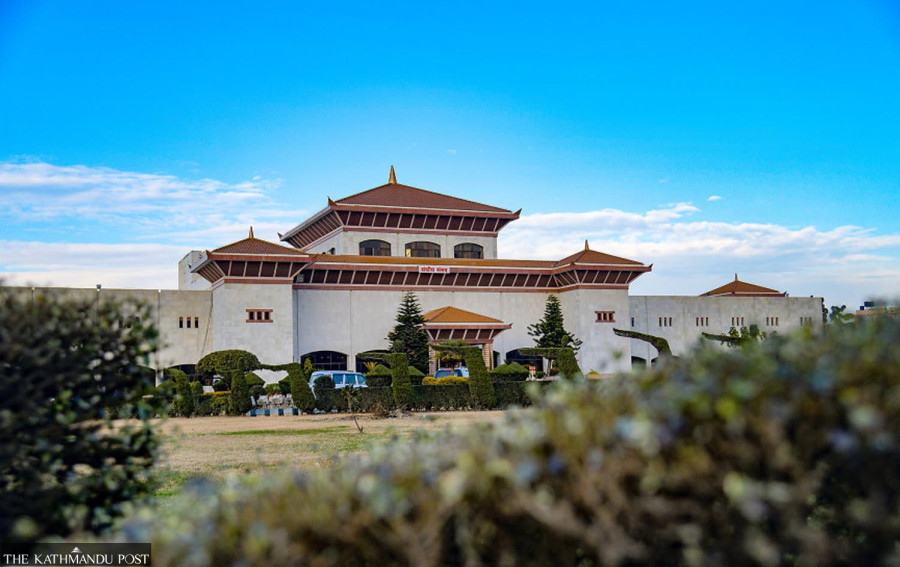National
Despite six-decade history, parliamentary practice remains weak in Nepal
Experts say that in countries where political parties aren’t democratic, the parliamentary practice cannot be effective.
Binod Ghimire
On Thursday, Nepal marked the 64th parliament day commemorating the commencement of parliamentary democracy in the 1950s. The first meeting of the country’s very first parliament took place on 30 June 1959 at midnight, four months after the parliamentary elections, held in February.
India’s parliamentary democracy had turned hardly seven when Nepal adopted it. However, Nepal’s parliamentary culture is still immature. Different ups and downs Nepal’s politics went through are responsible for the weakened parliamentary practice. However, more than that, the failure of the political and parliamentary leadership to strengthen the parliamentary systems is responsible for it, observers say.
In less than a year and a half since the parliament commenced, King Mahendra on December 15, 1960 dissolved the House, arrested first elected prime minister BP Koirala and imposed the party-less Panchayat rule. It continued for 30 years. Although there was a parliament named Rastriya Panchayat, mostly those who were close to the palace got elected or nominated to it.
However, even if the 30 years of Panchayat regime is discounted, the country’s parliamentary history is more than three decades old. Observers say strengthening parliament is part of state building but this never became the priority of the political leadership. “Every party tried to limit the role of parliament to make and unmake governments,” former Speaker Daman Nath Dhungana told the Post. “Not just parliament, all state organs haven’t functioned effectively because no attempts were ever made to strengthen the state institutions.”
Dhungana, who became the first Speaker after the restoration of democracy in 1990, says when profit making becomes the sole objective of the political leadership and parties fail to inculcate idealism, state institutions are bound to remain weak.
Despite six decades long history, the lawmaking process, which is the main function of parliament, is not participatory. Largely there is a tendency among the ruling party lawmakers not to counter the bills or proposals presented by the government. Similarly, in several instances the House meetings have been deferred in the lack of a quorum for the commencement and many lawmakers including the top leaders seldom show up in parliament or parliamentary committees. The House committees are often criticised for not taking mature decisions, not doing proper study on the issues they take up and often being selective in raising questions to the executive.
“The study habit of the lawmakers is very poor. They lack critical faculty to give feedback during the lawmaking process,” Som Bahadur Thapa, a former secretary at the Parliament Secretariat, told the Post. “Instead of attaining maturity, I feel the parliamentary practice has rather dwindled over the years.”
Observers don’t solely blame the political leadership for the weak parliamentary practice but find the Speakers and the Parliament Secretariat also at fault. Barring one or two, all the Speakers have been “yes men” of their parties, they say. “The Speaker has a strong role in strengthening parliamentary practice. However, in ours, they are more loyal to their parties,” said Dhungana. “They cannot maintain order in the House nor can they implement any decisions without the consent of their bosses.”
Successive leadership in parliament said having its calendar in place was necessary to function it effectively. A few months after taking the Speaker’s position, then Speaker Krishna Bahadur Mahara in October 2018 had said that making a calendar for the House of Representatives would be his top priority. However, after leading the House for over a year, during which he failed to prepare a calendar, Mahara stepped down in October last year following allegations of attempted rape.
Incumbent Speaker Agni Prasad Sapkota in April 2020 made a similar announcement. However, no steps have been taken towards preparing a parliamentary calendar yet.
Political experts say that in countries where the political parties aren’t democratic, the parliamentary practice cannot be effective. “Every party is trying to use parliament to its benefit. The prime minister and ministers skip crucial House meetings to attend other less-important functions and even resort to dissolving the House when their positions are threatened,” Khagendra Prasai, who teaches political psychology at the Nepal Open University, told the Post. “We cannot expect any positive steps towards strengthening the parliamentary system from the existing political leadership.”
The erstwhile KP Sharma Oli government dissolved the lower house twice in a span of five months. After coming under pressure from his party to quit, Oli first dissolved the House in December 2020 and again in May next year. The Supreme Court reinstated it on both the occasions.
The history of dissolution is not new. Then Prime Minister Girija Prasad Koirala dissolved the first parliament after the restoration of democracy, in 1994. Then Prime Minister Manmohan Adhikari dissolved parliament in 1995 although it was later reinstated by the court. In 2002, Sher Bahadur Deuba dissolved the lower house.
Observers say the frequent dissolutions prove the prime ministers, regardless of their political affiliations, found it easy to dissolve the House whenever they felt threatened.
“It is directly linked with the political culture which our parties lack miserably,” said Dhungana, the former Speaker.




 11.12°C Kathmandu
11.12°C Kathmandu














